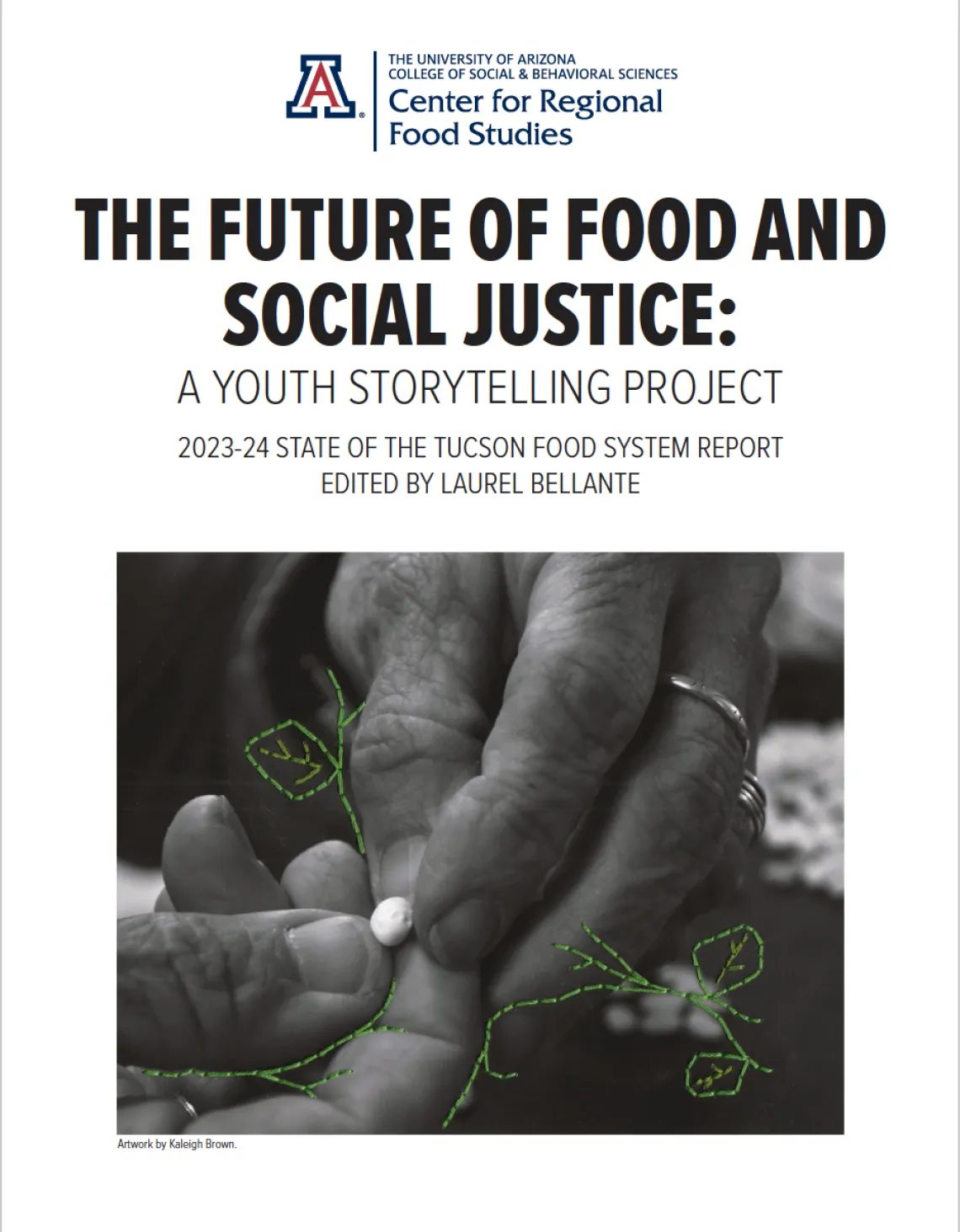The Future of Food and Social Justice: A Youth Storytelling Project
2023-24 State of the Tucson Food System Report

The Center for Regional Food Studies (CRFS) launched the Future of Food and Social Justice: A Youth Storytelling Project (FFSJ) in 2022 as a pilot internship program to mentor and support undergraduate students in sharing their food stories. Since Tucson was named an UNESCO City of Gastronomy in 2015, there has been an upwelling of interest in southern Arizona’s food and agricultural practices. With this internship, we endeavored to diversify the stories being told about food in our region, particularly by highlighting the experiences and aspirations of youth. For whether as first-generation college students, food service workers, children of farmworkers, emerging scholars and activists, or inheritors of food traditions and cultural wisdom, youth are frequently on the frontlines of our food system and yet their voices are too often absent from the stories we tell. By uplifting the stories of young people, particularly young people of color, this compilation aims to attend to this narrative absence and remind us of the abundance of critical perspectives, deep questioning, and profound insights that young minds have to offer related to our food systems, foodways, and the future of food justice.
Funded by two internal Hispanic Serving Institution grants, the project was guided by a paid 6-person steering committee that included community organizers and food scholars (2 Latinx, 2 Native, and 2 white). The steering committee coordinated the call for applications, led food justice and storytelling workshops, and mentored interns as they developed their stories. After circulating the call for applications, 14 undergraduate students from a diversity of backgrounds and disciplines were selected as the first cohort of storytelling interns for the 2022-23 academic year. Each intern was matched with a food justice mentor and participated in bimonthly mentorship circles and monthly workshops. While mentorship circles allowed for a mutual learning process and time to reflect together on food justice in both theory and practice, monthly workshops trained students in topics ranging from the ethics of research and storytelling to writing food memories, operationalizing a racialized right to food, defining food justice, and strategies for telling and disseminating food stories.
In this pilot year, FSSJ interns were invited to create stories in any modality and on any food-related topic of their choice. This openness was a deliberate strategy, one that honors the many ways of knowing and communicating. It allowed stories to emerge organically and encouraged students to articulate the stories they most wanted to tell in the way that felt most authentic to them. And the outcomes have been astounding. The resulting stories range from podcast interviews with local activists and Indigenous leaders to poems, beadwork, children’s stories, collage, embroidery, digital stories, recipe books, prose, and more.
In this project, we look to storytelling as both a means and an end. It was reaffirmed early on that the process behind creating and sharing stories is as vital as – and perhaps even more important than – the end products, the final stories. Throughout our time together, we engaged in mentorship circles in which all of us were both mentors and mentees, involved in a mutual learning process. Through deep listening and vulnerability, we engaged in cross-cultural and inter-generational dialogues that led all of us to enrich our perspectives and deepen our understandings about complex social issues. In sum, each of us, whether mentor or mentee, were transformed by the process itself.
Beyond the works featured in this compilation, interns have also shared their stories in other spaces. In June of 2023, eight interns and four mentors presented this work at the Agriculture and Human Values Conference in Boston, MA. Six mentors and four students co-wrote a chapter for a forthcoming edited volume by MIT press, entitled Nurturing Food Justice, in which we reflect upon our experiences from the pilot year of this project and emphasize youth storytelling as a key tool for working towards food justice. Lastly, several food stories, including a video of our storytelling showcase from December of 2023, are available on our Center website at www.crfs.arizona.edu. We hope you enjoy the stories featured in this compilation and perhaps even get inspired to create and share some of your own stories.

